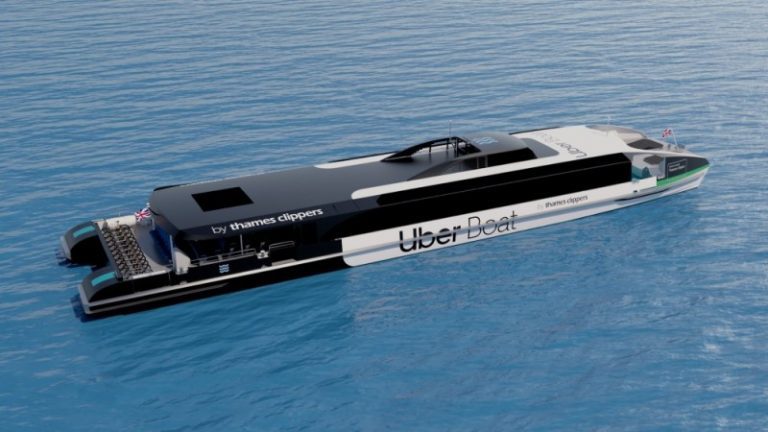
UK industry body, Discover Ferries, revealed that the country’s ferry industry will introduce fuel-efficient, hybrid-powered ferries to reduce carbon emissions and improve passenger experience. Six new ships have already entered service in the past two years and a further 11 will join fleets by 2027.
A zero-emissions Belfast commuter service is due to launch in 2024. Designed to fly above the water and use 90% less energy than conventional ferries, the ship is being developed by the Belfast Maritime Consortium with Condor Ferries, which will also inform plans for a future electric ferry for the Channel Islands.
In addition, two new P&O Ferries ships, launching in 2023, are designed to run on battery power for carbon neutral sailings once charging systems are installed in the ports.
Hybrid vessels are in development for routes operated by Brittany Ferries, Isle of Man Steam Packet Company, Isles of Scilly Travel, Caledonian MacBrayne, and London’s Uber Boat by Thames Clippers – which is set to launch the UK’s first high speed hybrid ferries in 2023. The vessels can either run on fuel/biofuel or electricity or a combination of the two.
Stena Line is developing its next generation of E-flexer vessels which will be dual-fuel methanol hybrids.
In a bid to reduce carbon by a further 7,500 tonnes per year, WightLink is aiming to launch the Solent’s first all-electric freight and passenger ferry within the next five years. Similarly, all-electric vessels are in development by Caledonian MacBrayne for the West Coast of Scotland.
Discover Ferries is an industry body representing 13 ferry operators in the UK, Ireland and the British Islands operating more than 80 routes. Its role is to promote ferry travel and ferry holidays and to campaign on behalf of its members and in the interests of ferry travellers.
Source: Discover Ferries


